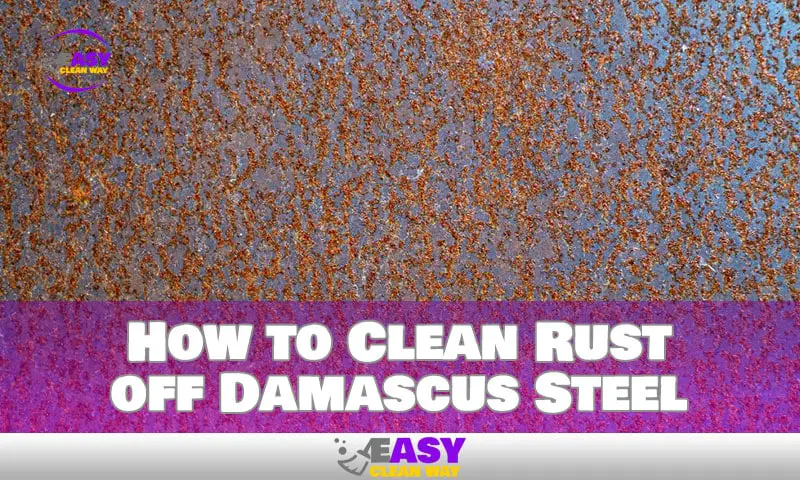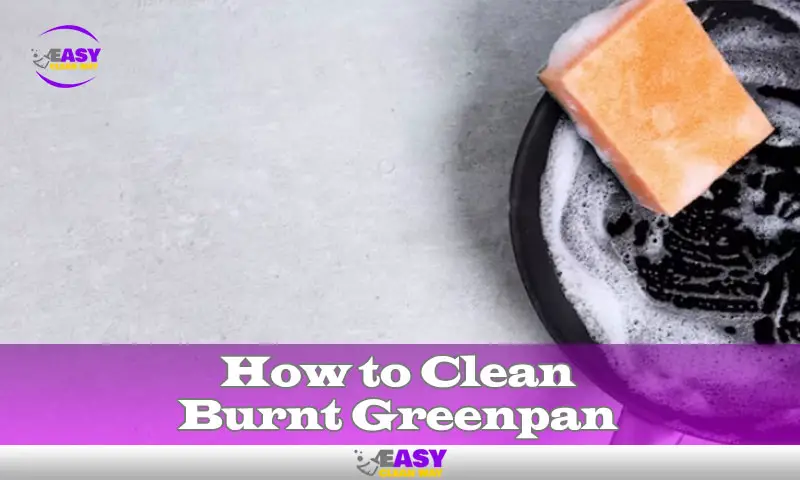Damascus steel has been around for centuries, and its unique look and feel has captivated many. But it does require a bit of extra attention in order to keep it looking its best, including regularly cleaning off any rust that might accumulate. If you’re wanting to give your Damascus steel a bit of TLC, then you’ve come to the right place.
In this blog post, we’ll go through the foundations of removing rust off Damascus steel. From choosing the best cleaner to maintaining the overall integrity of your blade, this book covers all you need to know about restoring your blade to its former brilliance. With the help of our useful tips and tricks as well as your gained knowledge, you will be able to quickly and safely remove rust from Damascus steel. Let’s move forward!
What Is Damascus Steel?
If you’re looking for a resilient and unique material for your weapons, you’ve probably stumbled upon Damascus steel. Characterized by its hardiness and original streaked appearance, Damascus steel is made from bands of iron carbide in a pearlite matrix—alternating with bands of ferrite and cementite.
It has an incredible beauty that is unmatched by any other substance, and it is also stronger than conventional iron because of this. Compared to weapons created from other metals, those made from Damascus steel are exceedingly sharp, resilient, and long-lasting. Additionally, it has a more aesthetically pleasant appearance!
Why Cleaning Rust Off of Damascus Steel Is Important
To keep Damascus steel beautiful, sharp, and durable, it must be cleaned and oiled. Your Damascus steel should have any rust removed right away because rust can weaken the metal over time by causing pitting in the surface of the metal.
Fortunately, getting rid of rust is easy with some DIY tools and materials. White vinegar is especially effective in breaking down the rust since it contains acetic acid and helps dissolve the bond between the iron oxide (rust) and the metal surface.
To recap, regular cleaning and oiling of Damascus steel is necessary to maintain its appearance, sharpness, and strength. Rust buildup should be taken care of immediately; white vinegar is a great tool for this task. Doing this will keep your Damascus in top condition!
How to Clean Rust Off of Damascus Steel
Cleaning rust off of Damascus steel can be a bit tricky, but don’t worry—we’ve got your back. Here’s three surefire methods you can use to make your Damascus steel look as good as new again:
Baking Soda
Mix one part baking soda with two parts water and stir until it becomes a paste-like consistency. Apply the paste to a soft cloth and rub it over the rusty areas of your Damascus steel item. Rinse off with fresh water and dry with a soft cloth.
Lemon Juice
Using the same method as above, you can also use lemon juice in place of the baking soda! Just remember that you should use lemon juice only on non-porous surfaces, since it can discolor porous surfaces like wood.
Soft Scrub + Q-tip
Try creating a paste-like consistency by combining one part Soft Scrub with four parts water if you have some particularly difficult-to-remove rust spots on Damascus steel. Apply the mixture directly to areas of surface rust by dipping a q-tip into it. Repeat as required, rinsing off any extra mixture, and then patting dry with a soft cloth.
When NOT to Clean Rust Off of Damascus Steel
Believe it or not, there are times when you should not clean rust off of Damascus steel. In fact, if you don’t clean your Damascus steel the right way, you could damage it. Here’s what you should avoid:
Harsh Chemicals
Using harsh chemicals to clean rust is a big no-no. The chemicals can weaken and corrode the metal, causing more damage than good. They can also change the color of the metal, so it’s best to avoid using them altogether.
Moisture
Don’t leave your Damascus steel exposed to moisture for too long, as this can cause rust to form. If your steel does get wet, make sure to dry it off quickly and completely with a soft cloth.
Abrasives
Rubbing away rust with abrasive materials is another big don’t. Doing this will scratch and damage the metal surface, making it more vulnerable to corrosion in the future.
In the long term, using the incorrect techniques to remove rust from Damascus steel will only lead to more harm. Remember these straightforward rules to maintain the strength and beauty of your Damascus steel: avoid using corrosive chemicals, exposing it to damp, and using abrasive materials.
Additional Ways to Protect Damascus Steel From Rust
Prevention is essential if you want your Damascus steel to remain rust-free and in good condition. The easiest way to avoid rust is to store your blade in a dry, cool environment while lubricating it with a wax-based lubricant. A covering that can help keep moisture off the blade and shield it from the environment can be made by applying wax or mineral oil.
You should also avoid taking Damascus blades out of their sheaths so they don’t come in contact with humid air. If you do find yourself in the unfortunate situation with a rusty Damascus steel blade, you can use some additional methods to clean it up and get it back to its original condition. Here are a few tips:
- Use Soft Scrub and a q-tip for spot cleaning
- Use a non-metallic nylon scrubber or toothbrush to scrub away the rust
- Polish the blade with fine steel wool or a buffing cloth
- Use WD40 as your final step for wiping away any remaining oil on the blade
By following these steps and using these cleaning materials correctly, you should be able to easily clean up any rust that appears on your Damascus steel blades—making them look as good as new!
Tips for Maintaining a Rust-Free Damascus Steel Knife
Your Damascus steel blade is a thing of beauty, and you want to keep it looking like new. To maintain its etched patterns and stunning shine, there are some things you can do to make sure your knife stays rust-free throughout its lifetime.
Rinse and Dry
First, rinse off the blade immediately after each use. Then, dry it thoroughly with a clean cloth or paper towel. This will help prevent moisture from accumulating on the surface of the blade which can cause rusting.
Lubricate
Lubricating your knife is another approach to prevent corrosion. You can coat the blade evenly with Renaissance Wax or mineral oil; just make sure to remove any extra. This will assist shield against moisture and provide a shield that shields against rusting over time.
By making sure you rinse and dry your Damascus steel after each use, you’ll be well on your way to keeping your knife looking great for years to come. So now that you know what it takes to keep your Damascus steel rust-free, take these tips and get cleaning!
People Also Like: How to Clean Non Removable Insoles Without Ruining Them
Conclusion
With the tips outlined in this article, you should be well-equipped to tackle the rust on your Damascus steel and give it a new lease on life. Start by understanding the nature of the problem, what kind of steel you’re dealing with, and then the best methods to tackle the rust.
Oil is your best bet when it comes to the cleaning procedure for loosening the rust, after which you may clean, polish, and finish it to a spotless, sparkling condition. And keep in mind that everything begins with routine maintenance to keep your Damascus steel in top shape.
So with our advice and a little elbow grease, it shouldn’t take long to get your Damascus steel looking like new. Good luck and happy cleaning!
Hey there! I’m Alton Smith, your Clean Expert blogger. I’m on a quest to help you conquer chaos and embrace the joys of a tidy life.





